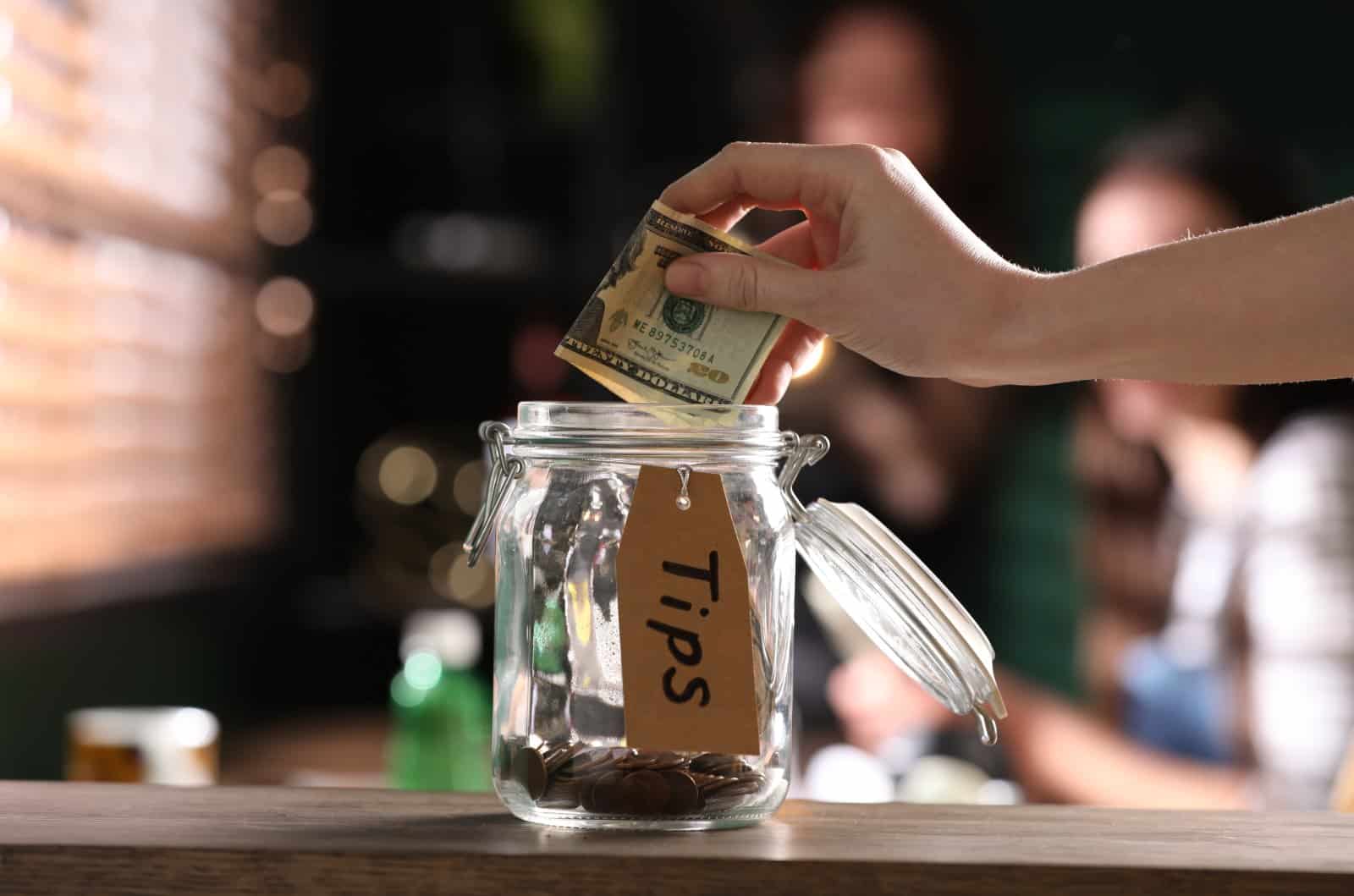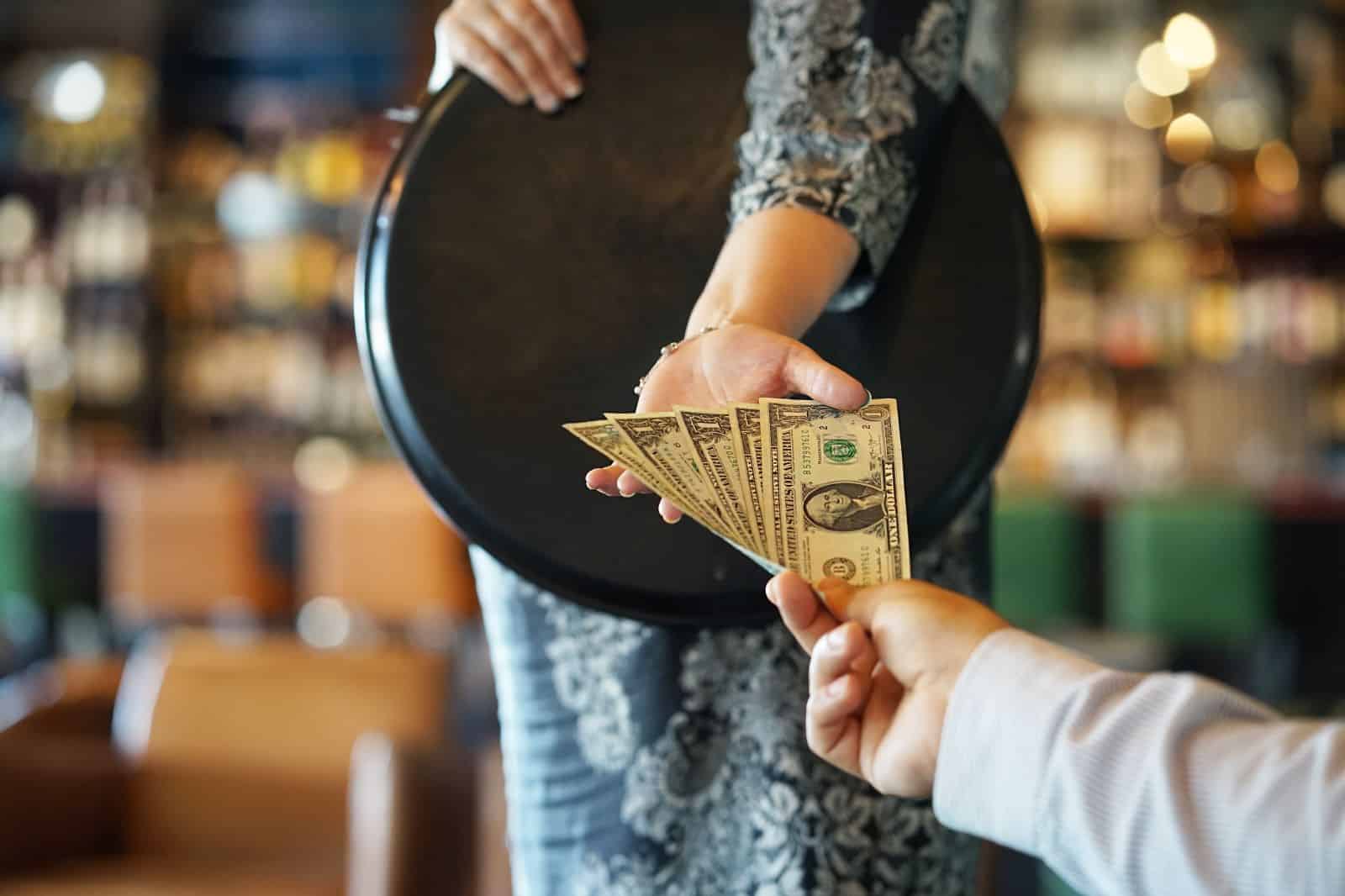Understanding the nuances of tipping can help you to deal with this practice more confidently. Recent cultural shifts have brought tipping expectations to even more industries, frustrating many customers who can’t figure out what is appropriate. Here’s a breakdown of everything you need to know about tipping in the U.S.
The Basics of Tipping in the U.S.

Traditionally, tipping has been a way to show appreciation for good service. In the U.S., it’s customary to tip in various service industries, with restaurants being the most common.
Why Do We Tip?

Tipping has origins in Europe, but businesses in the U.S. adopted this practice after the Civil War. Many entrepreneurs saw tipping as an opportunity to take advantage of workers by paying them less and expecting customers to supplement their wages. This practice is now an expected part of American culture.
Where Is Tipping Expected?

Generally, tipping is expected for services: restaurants, bars, hair salons, taxis, and hotel workers, for example. However, the culture is shifting and more and more places are asking for tips, even when a service is not provided.
How Much Should You Tip?

A standard restaurant tip is around 15-20% of the bill, usually determined by the customer’s satisfaction. For delivery services and rideshare services, the tip may be closer to 10-15%. For hotels and bars, a few dollars per bag or drink is usually more common.
When Should You Tip?

Most of the time, tipping is expected when a service is provided. For instance, when waiters take your order and bring you food while accommodating any questions you have. Similarly, when a delivery driver brings you food from another location. Due to the nature of these services, tipping is expected.
The Customer Is Always Right

The nature of earning tips has also created an environment where ‘the customer is always right.’ Because many service workers depend on tips to make a living, the temperament of the customer can determine their wages, so many workers will try to better accommodate and satisfy customers in order to get paid.
The Impact on Employees

For many workers, tips make up a significant portion of their earnings. Many waiters make below minimum wage, closer to $2/hour, which means their income is primarily from tips. This can lead to financial instability, as income is unpredictable and varies with each shift.
Do Employees Want to Get Rid of Tipping?

The idea of getting rid of tipping has been controversial for service workers. While some would prefer to have reliable and livable salaries, others prefer tipping because of the potential to make more money, depending on the business.
The Impact on Customers

Customers often feel pressured to tip well, even if the service is subpar. This can create stressful situations, especially if the tipping expectations are unclear.
Rising Tipping Expectations

Many surveys indicate that tipping expectations are increasing. While 20% used to be an indication of great service, more Americans feel that 20% is the minimum they have to tip. This combined with higher overall prices means eating out or going for drinks can be a financial burden.
A Cultural Shift

In addition to higher tip amounts, there also seems to be an increase in the places asking for tips. Technology has enabled this change, with card machines now asking for a tip at gas stations, pick-up orders, and even department stores.
Tipping Culture in Other Countries

Tipping practices vary globally. In many European countries, a service charge is included in the bill, and tipping is less common or usually at lesser amounts. In Japan, tipping can be seen as rude and is generally not practiced.
Why Tipping Differs Internationally

Countries have different cultural norms, labor laws, and wage starts that influence tipping practices. Countries with higher minimum wages often don’t rely on tipping as much.
Reactions to Increased Tipping Expectations

Many Americans are becoming more frustrated by the expectation to tip more frequently and generously. Some feel that it’s unfair that they have to subsidize worker wages through tips.
Parodies on Tipping

Social media has picked up on the trends in tipping. Creating parodies about the tipping culture has become popular, with creators making videos of people asking for tips for services like giving directions, opening the door for someone, and cooking dinner for their family.
The Case for Higher Wages

Some argue that the tipping system should be replaced with higher base wages for service workers. This could create more stable and predictable income, but potentially at the cost of customers, if the prices of services and food increase to compensate.
How to Handle Tipping Requests

When faced with a tipping request, you can consider the quality of service, the standard tipping rate for the service, and your personal budget. While tipping in certain situations is customary, it’s okay to tip less if the service is poor.
The Future of Tipping

There is an ongoing debate about the future of tipping in the U.S. Some businesses are experimenting with no-tipping policies, instead offering higher wages to their employees, but some are pushing back against this idea in favor of traditional tipping.
Tipping as a Personal Choice

Ultimately, tipping is a personal decision. While it’s important to be aware of norms and expectations, tipping should still reflect your own satisfaction with the service and your financial comfort.
Remote No More: 19 Companies Returning to the Office

As the pandemic wanes, companies are recalling remote workers back to the office, sparking debates on fairness, costs, and convenience. However, there are also notable productivity, coworking, and mental health benefits to consider. Feeling the effects of these changes? Remote No More: 19 Companies Returning to the Office
8 Costco Must Buys and 8 to Leave Behind

Ever wandered Costco’s aisles, questioning if that giant jar of pickles is a real bargain? Or debated buying tires where you get your rotisserie chicken? Welcome to the definitive guide to Costco shopping—a journey to save money, prevent regrets, and offer quirky insights into bulk buying. 8 Costco Must Buys and 8 to Leave Behind
23 Reasons Texas Is the Next Big Thing

Texas is becoming a beacon of opportunity, blending cultural heritage with economic growth. From its landscapes to its industries, the Lone Star State offers a dynamic lifestyle. Here are 23 reasons why Texas stands out, attracting entrepreneurs, artists, tech professionals, and families seeking new beginnings. 23 Reasons Texas Is the Next Big Thing
15 Top Sites to Sell Your Unwanted Goods Besides Craigslist

Selling your unwanted items can declutter your space and boost your income. While Craigslist is popular, there are many alternatives with unique features and wider audiences. Explore these 15 Craigslist alternatives for selling everything from furniture to electronics, finding the perfect platform to turn clutter into cash. 15 Top Sites to Sell Your Unwanted Goods Besides Craigslist
Work from Anywhere: 19 Companies Still Supporting Remote Work

Tired of commuting and craving work flexibility? You’re not alone. Many companies now offer remote work, benefiting both employees and employers. Ever wondered how this shift could enhance your work-life balance? Work from Anywhere: 19 Companies Still Supporting Remote Work
The post – Why Americans Are Resenting the Tip Jar More Than Ever – first appeared on Liberty & Wealth.
Featured Image Credit: Shutterstock / Ground Picture.
The content of this article is for informational purposes only and does not constitute or replace professional financial advice.

